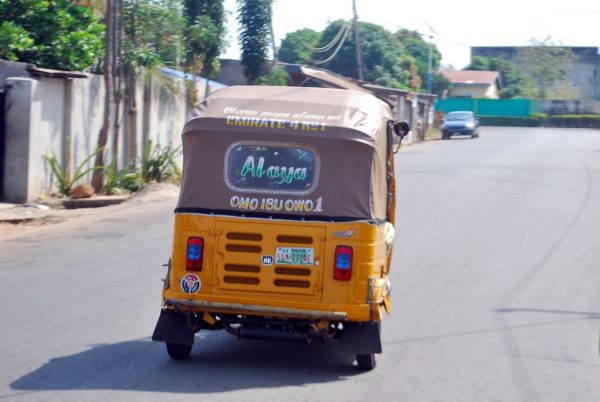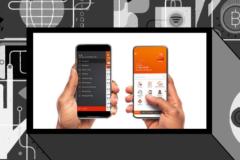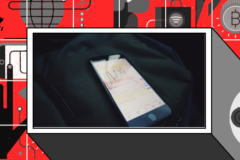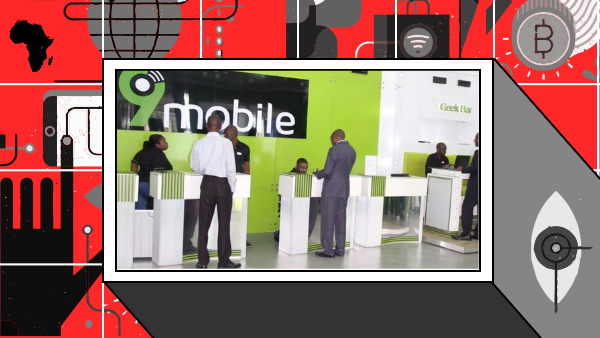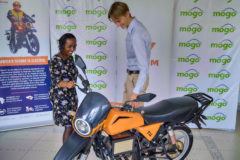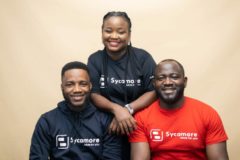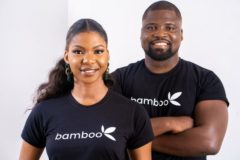Auto rickshaws also called tricycles or Keke (Yoruba word for bicycle) in Nigeria are one of the ways to quickly navigate traffic on the nation’s roads. The vehicles which are also known as Keke Marwa have been traced back to the government of Mohammed Buba Marwa, who was the military Governor of Lagos State from 1996 to 1999. He is credited for being the first to launch them as a commercial means of transport in Nigeria. They however became popular when former President Olusegun Obasanjo distributed 2000 units in Abuja in 2011 under the National Poverty Eradication Programme (NAPEP) which is why some people call them Keke NAPEP. Being able to drop people closer to their homes, low maintenance costs and employment of low-income earners are some of the things that make auto rickshaws great.
Auto rickshaws are quite popular in South Asia (also called tuk tuk) especially India where the largest manufacturer and seller of auto rickshaws Bajaj Auto hails from. Auto rickshaw hailing apps already exist across the world. There’s Jugnoo, Ola and AutonCab which are all Indian apps. Popular ride hailing company Uber has also launched its own auto rickshaw hailing service called Uber Auto. Uber Auto is currently available in India even though it has faced difficulty in providing the service in other locations. Uber also launched a similar service in Egypt in 2016 called uberTukTuk.
Auto Rickshaw Hailing In Africa
Ride-hailing apps offering riders an option to take auto-rickshaws are also present in some African nations. Asides uberTukTuk in Egypt, Taxify also rolled out its own TukTuk service in Mombasa, Kenya earlier in the year. There are about 10,000 auto rickshaws in Mombasa alone. In Kenya, Tanzania and Uganda, Mondo Ride is offering the service to riders. This year the company secured a $2 million investment bringing its total seed funding to $5 million. In South Africa, Shesha Tuks which has 53 eco-friendly electric tuks tuks is serving riders in Sandton and Rosebank. The startup already has corporate clients like Standard Bank and Cell C.
Launched in 2017 in Egypt, Halan App is another auto rickshaw hailing company. As at March 2018, it was reported to be closing a $2 million pre-Series A funding and already had about 10,000 downloads on Android devices. It is also available to riders in Sudan. Safaricom’s Little was also said to be launching a similar service in Kenya in 2016 available via USSD.
Auto Rickshaw Hailing In Nigeria
In Nigeria, auto rickshaw hailing is currently dominated by one player, Matatu. The startup which launched this year has an exclusive agreement with the Tricycle Owners and Operators Association of Nigeria (TOOAN). This is one of the advantages it has over potential entrants. The startup has already on-boarded more than 500 drivers and has over 3,500 riders signed up on its platform. The service is currently only available in specific areas of Lagos Island with future plans to launch across Nigeria. Matatu makes money by collecting 10% which is billed to the customer. It has a base fee of ₦ 150 (42 cents) and charges per KM. Customers are able charter a Keke or share with other people. Only 3 people can share one Keke at a time as against what obtains (4) with regular Kekes. Matatu also has options for advertising and delivery services.
Not only does Matatu work with independent drivers, it also owns some of the ‘Kekes’. Individuals also have the opportunity to purchase auto rickshaws and hand them over to the company to manage. “We recently had a lady give us about 150 Kekes to manage and add to our platform” Matatu’s Founder and CEO Samuel Ajiboyede told me via a telephone chat. “We helped her hire drivers and onboarded them on our platform”, Samuel said. “We also provide our drivers a mobile phone, health insurance and Keke leasing options. We do so through our partner V-Xchange”. V-Xchange is a leasing and health insurance company which provides nano health, nano leasing and nano insurance services. This access to credit has made the platform attractive to Keke drivers. “The drivers are happy and usually tell me how special customers are treating them” Samuel said. “We train them to be courteous to customers. When you get into a Matatu ride, your driver will say “Welcome to Matatu” and “Thank you for using Matatu” Samuel said. Drivers typically earn about 33% more on the platform than regular auto rickshaws. Regular drivers earn about 8,000 daily while Matatu drivers earn between 12,000 – 15,000 daily. The company has also signed an agreement with Bajaj Auto to get discounted auto rickshaws and also flexible payment options.
One of the key strengths of the startup according to Samuel is their ability to work with Keke riders as against competing against them. He noted that their service has brought more structure to the Keke business which is a win-win for all stakeholders. They have a database of all the Keke drivers they work with which has helped them get access into private estates where regular auto rickshaws are usually not allowed into. Matatu vehicles also have a micro GPS in them which implies that they can be tracked in real time. According to Samuel, riders don’t have to worry about forgetting their balance with drivers as they can always contact Matatu to get in touch with the driver. Riders can pay with cash or set up their debit cards for payment. Samuel said that at least 2 out of 10 riders use their cards for payment.
Obstacles & Future Prospects for Auto Rickshaw Hailing In Nigeria
Getting into auto rickshaw hailing requires partnering with associations like TOOAN given the public and commercial use of Kekes. There are hardly any private drivers of the vehicles, people who own them primary use them for commercial reasons. Additionally, Kekes are easy to identify and monitor. “It took us six months to conclude the agreement with the Keke association” said Samuel. “We had to continue engaging them until they were also able to understand our offering. They have a distrust for ride hailing companies as they believe they are out to compete with them and chase them out of the market” Samuel stated.
Another challenge is the low literacy level of the drivers even though there are some educated ones among them. In Matatu’s case it had to train them to use the driver app and also set-up email addresses and bank accounts for them. The on-boarding was challenging but once completed was rewarding. In order to keep them, Matatus has had to understand their unique needs. For example, Samuel stated that some drivers told him they don’t use hospitals, they prefer local herbs which they say work for them. This meant that they couldn’t provide health coverage to such drivers who prefered cash instead. On another occasion, they gave them uniforms and many drivers said they didn’t like them. The company had to spend extra money to get them t-shirts which they stated was what they preferred.
There has also been the fear of government shutting down Kekes. Samuel believes this may no longer happen as Kekes are a source of income for a very large number of Nigerians. Additionally, having a transparent system like Matatu wards off drivers using auto rickshaws for criminal activities. The training provided to drivers also ensures that they are compliant with traffic regulations. Some other challenges for auto rickshaw hailing deal with how people order them. Riders would rather go to the roadside to hail one as it may be quicker as against waiting for an auto rickshaw to come to them. Additionally, smartphone penetration is still low but growing. It would be great to be able to order the rides via USSD. Then there is also the fact that Kekes are limited to certain roads.
As regards future prospects, while the number of ‘traditional’ Kekes will continue to grow, it might be tough to build a sustainable and large e-hailing business around them in Nigeria. This is especially true in view of challenges like smartphone penetration, internet penetration and customer habits. The goal will be for founders to start from auto rickshaws and expand to onboard cabs and maybe motorcycles in order for the business to deliver high revenue. Having said that, auto-rickshaw hailing is already here in Nigeria (though new) and the number of drivers and riders are expected to continue to grow. As more Nigerians access the internet and ICT infrastructure generally improves, the sector is expected to grow even further.







